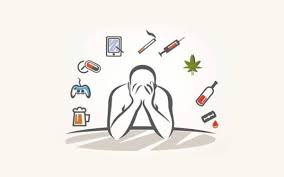A nurse is reinforcing teaching about alcohol tolerance with a newly admitted client. Which of the following statements by the client indicates that the teaching was effective?
"Alcohol tolerance causes me to have an increased effect when taking opiates."
"I will develop a decreased physical response to alcohol."
"Alcohol tolerance is a medical emergency and can develop as a result of withdrawal."
"Alcohol tolerance produces physical changes when I haven't recently ingested alcohol."
The Correct Answer is B
Choice A reason:
The statement "Alcohol tolerance causes me to have an increased effect when taking opiates" is incorrect. Alcohol tolerance refers to the body's diminished response to the effects of alcohol due to prolonged exposure. It does not directly affect the body's response to other substances like opiates. However, it's important to note that mixing alcohol with opiates can be dangerous and is generally advised against due to the risk of respiratory depression and other adverse effects.
Choice B reason:
The statement "I will develop a decreased physical response to alcohol" is correct and indicates effective teaching. As a person develops alcohol tolerance, their body requires more alcohol to achieve the same effects that were previously attained with less alcohol. This is due to physiological adaptations within the body, particularly in the liver and central nervous system, which become more efficient at metabolizing alcohol and less responsive to its effects.
Choice C reason:
The statement "Alcohol tolerance is a medical emergency and can develop as a result of withdrawal" is incorrect. Alcohol tolerance itself is not a medical emergency; rather, it is a physiological adaptation to regular alcohol consumption. Withdrawal, on the other hand, can be a medical emergency if severe symptoms such as seizures or delirium tremens occur. Tolerance and withdrawal are related but distinct phenomena; tolerance can lead to dependence, which, when alcohol use is stopped, can result in withdrawal symptoms.
Choice D reason:
The statement "Alcohol tolerance produces physical changes when I haven't recently ingested alcohol" is misleading. Alcohol tolerance does not produce physical changes in the absence of alcohol. Instead, tolerance is characterized by a reduced response to alcohol when it is consumed. Physical changes, such as withdrawal symptoms, may occur when a person who has developed tolerance stops consuming alcohol, but these are not due to tolerance itself.
Nursing Test Bank
Naxlex Comprehensive Predictor Exams
Related Questions
Correct Answer is D
Explanation
Choice A reason:
This statement reflects hypervigilance and a persistent sense of threat, which are symptoms associated with PTSD. Individuals with PTSD may feel constantly on edge as if danger is always imminent, leading to behaviors such as checking rooms repeatedly.
Choice B reason:
While this statement indicates a traumatic experience, it does not directly suggest symptoms of PTSD. PTSD is characterized by specific symptoms such as intrusive thoughts, flashbacks, and avoidance behaviors related to the traumatic event.
Choice C reason:
This statement may be indicative of a distressing combat experience but does not directly align with the symptoms of PTSD. It does not reflect the re-experiencing, avoidance, or arousal symptoms typically seen in PTSD.
Choice D reason:
This statement is a clear example of re-experiencing symptoms, which is a core feature of PTSD. Nightmares about the traumatic event and intrusive, distressing memories are common in individuals with PTSD. The vivid and distressing nature of such dreams can significantly impact an individual's well-being.
Correct Answer is A
Explanation
Choice A reason:
Respiratory depression/arrest is a well-documented risk associated with heroin use. Heroin is an opioid that can significantly depress the central nervous system, leading to slowed or stopped breathing. This can result in hypoxia, a condition where not enough oxygen reaches the brain, which can be fatal.
Choice B reason:
Acute pancreatitis is not typically associated directly with heroin use. While substance use can lead to various health complications, acute pancreatitis is more commonly associated with alcohol abuse rather than opioids like heroin.
Choice C reason:
Nasal septum perforation is a potential risk for individuals who snort heroin. The repeated irritation and damage to the mucosal tissues in the nose can lead to a perforation of the nasal septum, the tissue that separates the nasal passages.
Choice D reason:
Permanent short-term memory loss is not a commonly reported direct effect of heroin use. While chronic use of heroin can lead to cognitive deficits and deterioration of white matter in the brain, which affects decision-making and behavior regulation, it does not specifically cause permanent short-term memory loss.

Whether you are a student looking to ace your exams or a practicing nurse seeking to enhance your expertise , our nursing education contents will empower you with the confidence and competence to make a difference in the lives of patients and become a respected leader in the healthcare field.
Visit Naxlex, invest in your future and unlock endless possibilities with our unparalleled nursing education contents today
Report Wrong Answer on the Current Question
Do you disagree with the answer? If yes, what is your expected answer? Explain.
Kindly be descriptive with the issue you are facing.
